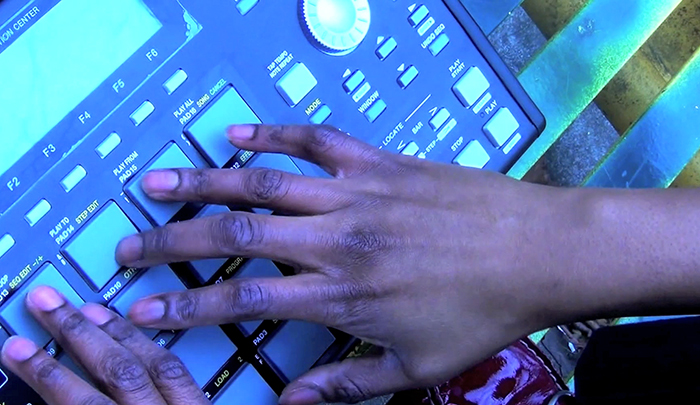Gender Amplified

The Gender Amplified movement started in my dorm room. Six years ago, I found myself sitting in my cramped room, nearly crowded out by all of the music production equipment I’d accumulated during college. I would make noise for hours silently in my headphones. I was just another bedroom music producer with big dreams of becoming the next world-known, Top 40 “hit-maker”. Those were the days. But there was something very different about my goals. I realized it every time I went to Guitar Center to buy gear. I certainly noticed it every time I went to a local beat battle. It seemed that I was one of few women aspiring to be a professional music producer. This fact intrigued me. There was no shortage of women aspiring to become singers and songwriters, so it seemed unusual that there would be so few on the production path. I often felt alone on my journey toward my passion, so I wanted to know: Where were all the women producers?
I did what any inquisitive, college-educated person would do to get an answer. I Googled. My original query was ‘female music producer’. It produced some interesting results. In fact, I found that there were many women producers out there. They hailed from various parts of the world, worked in all different genres, and had impressive discographies. It quickly became apparent to me that the issue of women producers was one of visibility and not quantity. Once again, I wanted to know why. How was it that women producers could be excluded from the U.S. music industry? Unfortunately, this answer would prove more elusive than the previous, thus I focused much of my senior thesis research around the topic.
Through my desire to produce music, the will to see more women and girls exposed to music production, and through the help of some amazing friends and supporters, I spearheaded Gender Amplified: Women and Technological Innovation in Hip Hop my senior year at Barnard College. This day-long conference brought together hip hop producers, scholars, artists, activists, and music enthusiasts to assess the impact that gender has on the field of music technology and women’s participation in hip hop production culture. Special guests included Tricia Rose and DJ Spinderella. It was organized in collaboration with the Barnard Center for Research on Women, Barnard’s Africana Studies Program, and Femmixx.com.
This was only the beginning. The movement has expanded in mission and scope since then. I have realized that music production is bigger than making hit records and being a part of the music industry. For example, there is power and agency in giving women the tools, technical skill and knowledge to record, playback and transmit their own stories without male interference. Over the years, so many women artists have considered my recording space a “safe haven” for their intellectual and artistic ideas. Much of the business I get comes from women who desire a producer who will listen to them and encourage them to be themselves. They are women who have worked with their fare share of men producers who just want them to sing on cue or ignore them when they have questions about the technical process. Women’s voices and ideas can sometimes get lost in the gendered power dynamics of recording spaces. This is one of reasons why more women should be trained in music production and sound engineering.
Moreover, knowledge of advanced audio concepts such as digital signal theory, audio acoustics and sound design provides excellent applications for STEM subjects (science, technology, engineering, and mathematics). It is my theory that music production can serve as a gateway toward igniting young girls’ interests in STEM professions. My own personal experience is the basis for my hypothesis. When I first began producing, I only wanted to make music. However, I eventually realized that if I wanted to truly be a threat in my field, I needed to dive further into the science of audio production and engineering. Eventually I chose to obtain a master’s degree in music technology. I was able to increase my earning power in the audio field as a result.
As I embark upon the next phase of the Gender Amplified movement, I am very proud of the progress it has made. This movement is about celebrating the individual efforts and accomplishments of women producers in an attempt to construct a collective voice. The increased visibility of women music producers must begin with women affirming one another, producing our own voices, and collectively creating archives of our stories.
